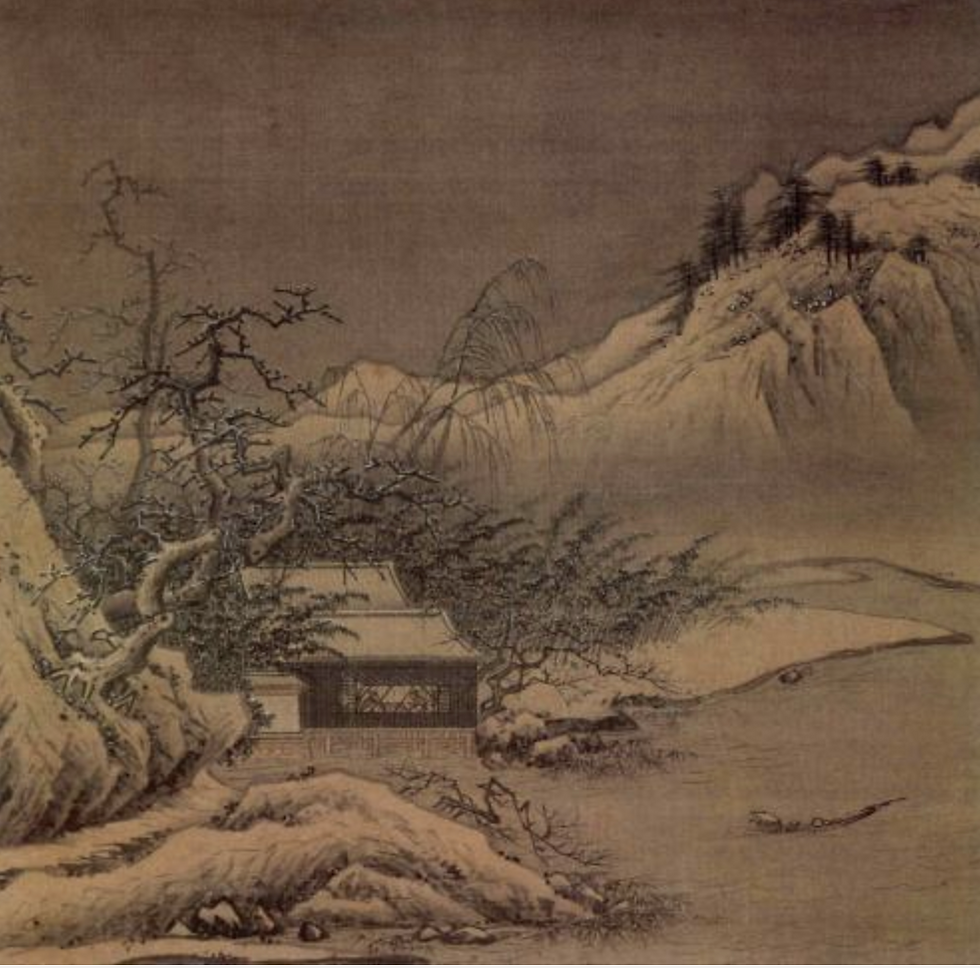望江南·春未老 (超然台作) When Spring is not yet old
- Julia Min
- Oct 10, 2021
- 3 min read
Updated: Dec 18, 2025
望江南·春未老 (超然台作)
原作:【宋】苏轼 (11th Century)
英译:闵晓红( 2025)
春未老,风细柳斜斜。
试上超然台上望,
半壕春水一城花。
烟雨暗千家。
寒食后,酒醒却咨嗟。
休对故人思故国,
且将新火试新茶。
诗酒趁年华
When Spring is not yet old
(written on the Transcending Tower)
- to the tune of Wangjiangnan
composed by: Su Dong-po (11th Century)
translated by Julia Min ( 2025)
When Spring is not yet old,
Soft wind gently kissing the willows,
Come to the Transcending Tower with me,
To see the town’s blooms embraced by the moat.
Gleaming through the misty rain on many homes.
After Forbidden Fire, a day of cold,
I woke up, still a little tipsy, full of woes.
Why all this sentiment among friends of old?
Let's try the new tea brewed on the new wood,
And spend our best years tasting wine and poems.

Appreciation:
Standing in Mizhou (modern Zhucheng, Shandong), the Transcending Tower was a building rebuilt by Su Shi during his governorship and named by his beloved brother, Su Zhe. In the spring of 1076, from this vantage point, Su Shi watched a scene that stirred a profound meditation on memory and belonging. It was the time of the Festival of Forbidden Fires, a two-day period preceding Qingming. This festival recalls the ancient, tragic tale of Zi-tui, a loyal follower so wounded by his king's neglect that he chose to perish in a mountain fire rather than accept a belated reward.
For Su Shi, this story of ultimate sacrifice and honour cast a long shadow. As the living paid tribute to their ancestors—tidying tombs and honouring the dead—the traveller Su Shi felt a strong sense of absence. In this masterpiece, he transformed the universal symbols of the season—the fresh willows, the spring flowers, the moat's reflective waters—into something intensely personal. This is not merely a description of nature, but a soul's melancholy. He painted the landscape with his own longing, bringing a lyrical intimacy that a Western reader would instantly recognise as profoundly romantic. One can almost hear a distant echo from Wordsworth in his solitary gaze, finding the universal within the deeply personal.
Notes:
1.Forbidden Fire Day, or Cold Food Festival, two days before Qingming Festival. People were not allowed to make fires, so no hot food on that day.
3. ‘斜’and ‘嗟’ in the original:the modern pinyin doesn’t rhyme in the poem, so these two, I reckon, are likely pronounced as ‘xiá’ and ‘jiā’ in the Song Capital Bianliang ( today’s Kaifeng city in Henan Province).
Reference:
1.older version: Blooming Alone in Winter by Gordon Osing, Julia Min and Huang Haipeng (《寒心未肯随春态》戈登.奥赛茵,闵晓红,黄海鹏) “From Heavenward Pavilion – to the tune of Wangjiangnan – The spring is not yet old and a soft wind mixes the willow branches./Come up onto Heavenward Pavilion to see with me,/ See the half-full moat this Spring, watering a whole city’s blooms./The fog and mists of the Spring rains envelope so many homes./After the Festival of Forbidden Fires. I woke-up drunk, turned-over, and sighed,/Don’t think about homesickness when you’re with old friends./Let’s make a fresh fire and boil new tea together./How fine to spend our best years drinking poems and wine.”
Pinying and Word -For-Word Translation:
wàng jiāng nán - the musical tune for this ci poem(Looking at South of the River)
(chāo rán tái zuò )- (write on Transcending Platform)
chūn wèi lǎo - spring not yet old,
fēng xì liǔ xiá xiá - wind soft willows swaying back and forth。
shì shàng chāo rán tái shàng wàng - try go up to transcending platform to see,
bàn háo chūn shuǐ yī chéng huā - half full moat spring waters a whole town flowers。
yān yǔ àn qiān jiā - smoke rain gloomy thousand homes。
hán shí hòu - after the Cold Food Festival,
jiǔ xǐng què zī jiā - drunk awake but sigh。
xiū duì gù rén sī gù guó - stop before old friend miss home / native place,
qiě jiāng xīn huǒ shì xīn chá - let's try new fire to new tea,
shī jiǔ chèn nián huá -poems wine spend golden years。



Comments